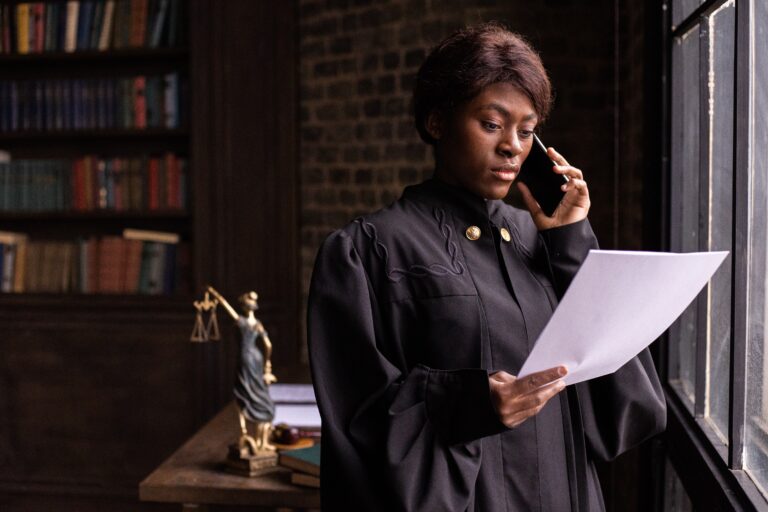What does hearsay mean in court? Under Australian law, hearsay is an out-of-court statement. In other words, it is a statement that someone makes outside of court. A party may the offer this in court as evidence to prove the truth of the matter asserted in the statement.
The reason for this is that the person who originally made the out of court statement may not be present in court for cross-examination. This can make it difficult to assess the accuracy and reliability of the statement. The witness’s evidence relies, or the witness’s testimony relies on another person’s statement heard by the witness.
However, there are some exceptions to the hearsay rule. For example, hearsay evidence may be admissible if it falls under a hearsay exception. For example, consider the dying declaration exception. It allows statements made by a person who believed they were about to die to be admitted as evidence in certain circumstances.
Ultimately, the admissibility of hearsay evidence in court in Australia depends on the specific circumstances of the case. It also depends on the application of the relevant laws and rules of evidence. It may also differ depending on the type of trial court whether it is for criminal trial or otherwise.
What Does Hearsay Mean in Court Proceedings?
Here are some key points to know about hearsay in court in Australia:
- Hearsay is generally not admissible: The hearsay rule applies to both criminal and civil proceedings. It ensures that parties only present reliable and trustworthy evidence to the court.
- Hearsay exceptions: There are a number of exceptions to the hearsay rule. These allow certain types of hearsay evidence to be admitted in court. Common exceptions include statements made in the course of business, dying declarations, and statements made by an unavailable witness.
- Business records: The business records exception allows parties to admit certain records or documents in court as evidence. For instance, medical records or financial records.
- Dying declarations: The dying declaration exception allows statements made by a person who believes they are about to die to be admitted in court as evidence provided certain criteria are met.
- Unavailable witness: In some cases, a witness may be unavailable to give evidence in court. For instance, if they have passed away or are unable to attend court due to illness or disability. In these cases, hearsay evidence may be admissible if it is the best available evidence.
- Court discretion: Even if hearsay evidence falls under one of the exceptions, it is ultimately up to the court’s discretion whether or not to admit the evidence. The court will consider factors such as the reliability of the evidence, the circumstances in which it was made, and the importance of the evidence to the case.
It is important to note that hearsay evidence can be complex and there are often nuances and exceptions that may apply in specific situations. If you have concerns about hearsay evidence in your case, it is recommended that you seek advice from a qualified legal professional for criminal proceedings.
Family Law and Rules of Evidence
Here are some key points to know about hearsay evidence in family law cases in Australia:
- Hearsay evidence is generally inadmissible: As in other types of court cases, hearsay evidence is generally not admissible in family law cases, as it is considered to be unreliable and may be based on second-hand information, speculation, or misunderstanding.
- Exceptions to the hearsay rule: There are some exceptions to the hearsay rule in family law cases, which allow certain types of hearsay evidence to be admitted in court. For example, the exception for out-of-court statements made by children who are victims of abuse may be applicable in some cases.
- Best interests of the child: In family law cases, the best interests of the child are the paramount consideration. This means that the court will consider all relevant evidence, including hearsay evidence, if it is necessary to make a decision that is in the best interests of the child.
- Informal evidence: In some cases, the court may consider informal evidence, such as emails, text messages, and social media posts, which may contain hearsay statements. The court will consider the reliability and credibility of such evidence when making a decision.
- Court discretion: Ultimately, it is up to the court’s discretion whether or not to admit hearsay evidence in a family law case. The court will consider factors such as the reliability of the evidence, the importance of the evidence to the case, and the impact that admitting or excluding the evidence may have on the parties involved.

Seek Advice From Lawyers for Hearsay Matters
If you have a legal matter that involves hearsay evidence, it is important to seek advice from a qualified lawyer. Speak with a lawyer who has the experience of dealing with such matters.
A lawyer who is knowledgeable about hearsay rules can provide you with guidance. They can help you with presenting your case and handling any hearsay issues that may arise. They can help you determine whether the hearsay evidence is admissible or inadmissible. Moreover, if it is admissible, how to present it in a way that is likely to be effective.
A lawyer can help you understand the potential consequences of hearsay evidence on your case. They can also help you develop a strategy to overcome any challenges that may arise. They can also assist you in identifying and obtaining admissible evidence to support your case.
Contact JB Solicitors for more information.
